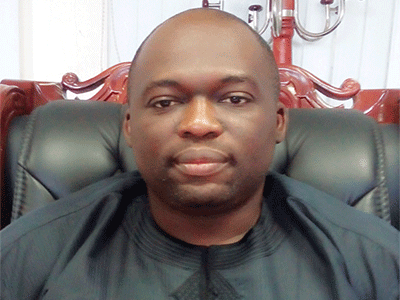 George Onafowokan, Managing Director/Chief Executive Officer, Coleman Wires And Cables
George Onafowokan, Managing Director/Chief Executive Officer, Coleman Wires And Cables
As the Chairman of the Electrical and Electronic Sector of the Manufaturers’s Association of Nigeria (MAN) and a well-established member of the Cable Manufacturers Association of Nigeria (CAMAN, Sub-Sector of the Electrical and Electronic Sector of MAN) comprising all top-rated cable manufacturing companies in Nigeria, Coleman Wires and Cables has fulfilled all quality standards to keep its position in the association and as a result continues to receive the Nigeria Industrial Standard (NIS) and Standards Organisation of Nigeria (SON) certifications since 2002.
The company has available production useful for the Oil and Gas in a bid to fulfill another vital aspect of the law which dwells on the high voltage products. Coleman Wires and Cables’s new High Voltage Production plant in Sagamu, Ogun State is the first high voltage production in West Africa and making Nigeria only one of the sixth country in the continent with a high voltage production plant. Coleman also became the first producer of High Voltage cables under the local content low and with an investment of over Five Billion Naira.
George Onafowokan, Managing Director/Chief Executive Officer, Coleman Wires and Cables disclosed that the expectation was to double the capacity within the first twelve months. Unfortunately, that is the area where the Oil and Gas companies seem to become more critical. That is, if the rating for the low voltage is supposed to be 90% but we have 5% on the other side of the high voltage, these companies do not even want to look in our direction. They are not interested in making any request, instead they look for all manner of excuses. This reality made us slow down the second phase of almost N10 billion production investment where capacity utilization in the plant is less than 20%, currently”.
The cable magnate bemoaned the development as a big discouragement because the key reason for going into the project was based on the safety and the guarantee given by the enabling law. We appreciate the Local Content board, we have done a presentation for them and their representatives have come to see the factory. However, you will be amazed to find out that everybody is still finding excuses and we need to find out the reason for that. Utilization through local content and sourcing of products are not really encouraged as the law stipulates”, he added.
He advised NCDMB to urgently review the aspect of enforcement in order to encourage potential investors contrary to the current situation whereby organizations will invest so much in a project just as Coleman Wires and Cables did only to get discouraged due to lack of patronage, locally. “The follow-up investment that is supposed to occur may never happen because the success of the initial project can only encourage other investors whilst lack of it will yield negative result. Hence, the basic aim of the Act to create employment will be defeated”.
Onafowokan emphasized that based on the capacity that has been expanded by Coleman in the last two years, the Cable Industry can surpass the 90% mark in terms of local production and there is no reason why the country should import cables. As it were, the capacity (which is almost triple the initial capacity) that our project has added is not only for the company but for the entire nation”.
Therefore, for the low voltage cable, certainly there is no issue concerning our capacity as an industry or as a country. We have been involved in one of the Samsung Heavy Industries’ project for LADOL. Meanwhile, on the high voltage where we have put in place more than the 45 meters per 100 meters the local content law stipulates, we have not been able to get a single request. Honestly, there is no excuse for any organization to ignore the level of standard of our project in Nigeria”.
Concerning the role of a stakeholders’ forum to monitor and review the progress made in the implementation of the local content, Onafowokan said the Act actually spelt out the setting up of a Stakeholders’ Forum. The challenge is that the forum was only set up three years after the creation of the board. We were nominated as part of the committee from the Manufacturers Association of Nigeria (MAN) which falls under the MANLOC group. We have presented useful suggestions but sadly many of such good suggestions have not been taken.



